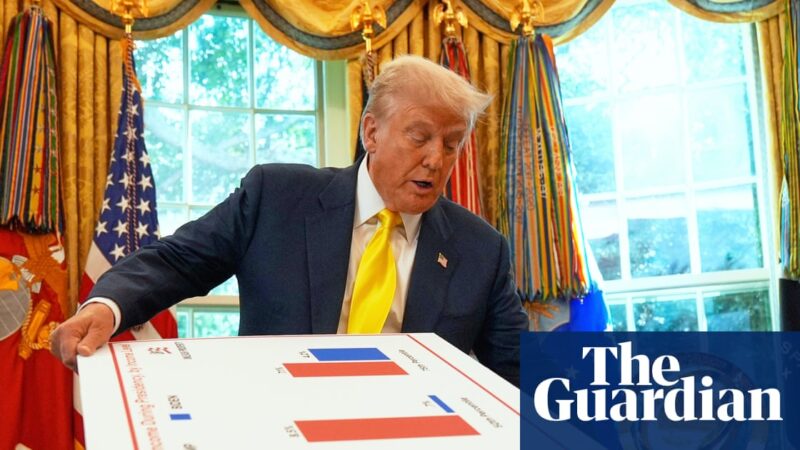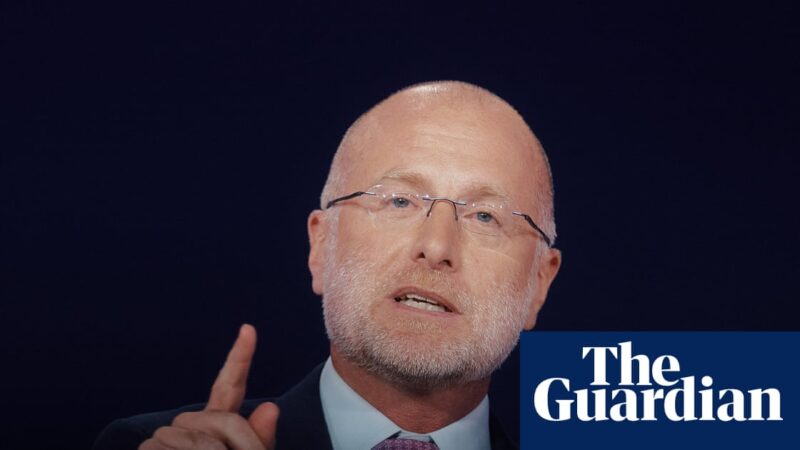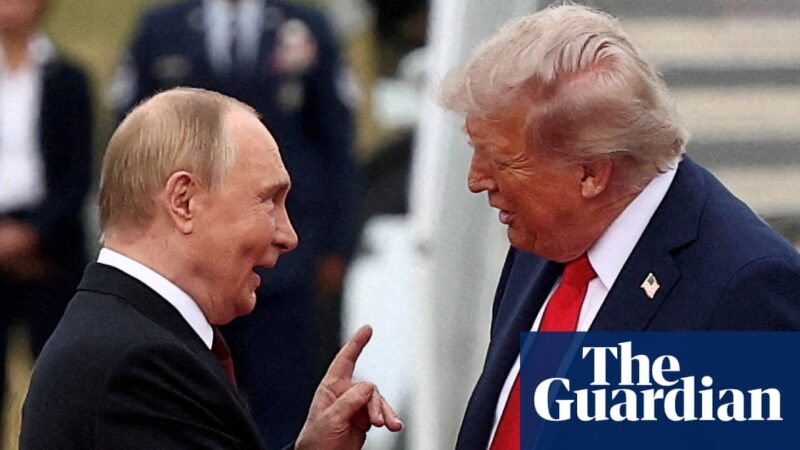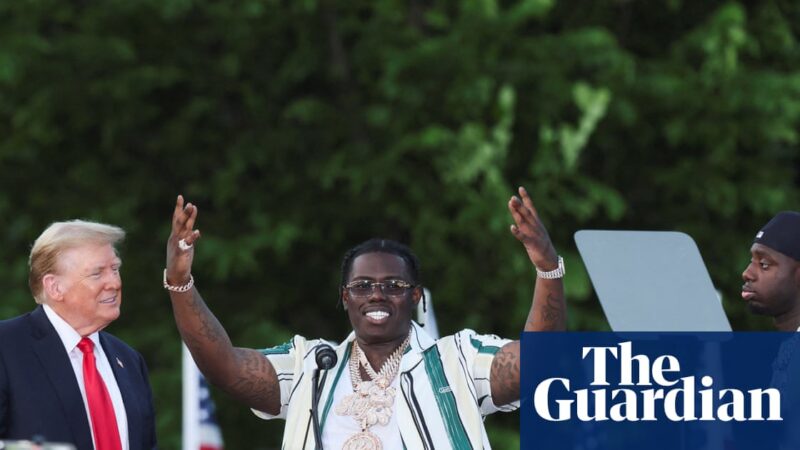Farage, Trump, Musk: your boy Javier Milei just took one hell of a beating. Why so quiet? | Aditya Chakrabortty
So you really want to know how Prime Minister Farage would pan out? Well, speculate no longer. An excellent test case is unfolding right now, in a country that just so happens to be run by one of Nigel’s heroes. Javier Milei is “amazing”, said the CEO of the private company he calls Reform. “Cutting and slashing … doing all the things he’s done … that’s leadership.”
You may know some of this story, about how a political outsider took power in Argentina. You’ve seen photos of El Loco, the self-styled madman, in a black leather jacket, with sideburns like hedges and wielding a giant red chainsaw – all the better to slash the public sector with.
Taking over Latin America’s second-largest country made Milei the poster boy of the international hard right. Elon Musk: “I love Javier Milei.” Kemi Badenoch: “Javier Milei is the template.” Donald Trump: “My favourite president.” In office, he was lionised by Wall Street and the international commentariat. Milei’s economy was declared by no lesser sage than Niall Ferguson as a “man-made miracle”.
Yet over the past few weeks, Argentina has gone into freefall. Investors have yanked billions out of the country, and the peso has dropped like a stone. A few days ago Trump was forced to pledge $20bn (£15bn) to prop up his friend, in addition to a rescue loan from the IMF. Later this month, Milei faces midterm elections that will serve as a referendum on his presidency and the results are expected to be bad. “We are seeing in real time how a government can melt in front of our eyes,” Alejandro Bercovich, a leading Argentine TV and radio journalist told me this week. “I never thought they would collapse this quickly.”
It’s not only Milei’s administration melting away; so too are his once-packed international throng of cheerleaders and wolf-whistlers. Farage, Badenoch, Musk and all the rest are maintaining a red-faced silence. Curious, that. But the rest of us should find out a bit more about how the great “libertarian success story” of this decade, to use Ferguson’s term, is now also its biggest libertarian flop. It makes for quite a parable.
Milei’s true value lies in his demonstration of how the attention economy can propel the hard right into power. Like Farage and Trump, he is no creature of the party system but had come from economics and TV punditry. Combining those two disciplines means he can turn his guru Milton Friedman into viral content. Climate change is a “socialist lie”, he’d opine, or the poor should be “free” to sell their organs. Oh, and the state is “a paedophile in the kindergarten”. Three years before taking office, Milei had already stormed TikTok.
At its core, his message is extremely rightwing, but Milei can wrap it in leftwing phrases, swiped from the Peronists of Argentina and further afield. Among his most popular targets is la casta, Argentina’s corrupt political elite. “La casta tiene miedo!” he roared on election night: The elite is afraid! It was the same slogan coined in the 2010s by the socialists of Spain’s Podemos. It was also language off limits to the exhausted centrists of both right and left, just as Farage today can promise to renationalise water companies.
Broadcast to an electorate tired of a failing economy, Milei reached voters other rightwing politicians just couldn’t reach. “He got into power by attracting votes from the poor and the young – the first non-Peronist to do so,” says Maria Victoria Murillo, an expert in Latin American politics at Columbia University.
Milei’s big achievements came in his first few months in office. Inflation plunged and the economy stabilised. But the Chicago fanboy who once promised to jettison Argentina’s domestic currency and move it on to the US dollar (which would have been economic suicide) then began boasting about his “super peso”. More seriously, he offered no real solutions for Argentina’s chronic problems of an undeveloped industrial sector and addiction to income from selling basic commodities. Meanwhile, the arch-enemy of the corrupt elite has himself been caught up in a corruption scandal, with his sister – “the boss”, as Milei calls her – accused of taking kickbacks of 3% on government drug contracts. The president’s response to the allegations was first silence, then to claim they were faked by AI, then to argue that 3% was risibly low.
All he had was chainsaw economics: slashing government departments, stripping back social welfare and laying off public servants. It was the same recipe as Musk tried at Doge, but with wild-eyed intensity and disregard for the human and political consequences. Half of Argentina’s workers cannot eke out their pay for a whole month, according to one survey.
after newsletter promotion
Last month, Milei got his own dose of shock therapy. Marching into what he termed a “life-or-death battle” in elections in Buenos Aires, he was pelted with stones by angry voters and then handed a resounding defeat. While Buenos Aires is historically Peronist, the Peronists did far better across the province than they had for years. “The people thought this guy would make them better off,” says Murillo. “Now they’re deserting him.”
Then came the currency crisis. Argentina’s central bank – which Milei once promised to abolish – threw billions into the market to keep the peso from collapsing further against the dollar. Trump tweeted his support, then his treasury secretary, Scott Bessent, stepped in against the “speculators” – an odd phrase, given Bessent made his name as George Soros’s lieutenant when they broke the pound in the early-90s European Exchange Rate Mechanism crisis. Milei once posed as an outsider who could do the emergency surgery to fix his country; he is now beholden to the same institutions he once scorned and reliant for support on a foreign power to the north and the wealthy elites at home who have raked off so much of Argentina’s wealth.
“They want to do what?” said the journalist Bercovich, when I told him that Farage and Badenoch had claimed to be keen students of Mileinomics. “No, no, no. People in Britain must know: this has been a disaster from which it will take us years to recover.”
Which makes the blushing quiet over this historic debacle all the stranger.





